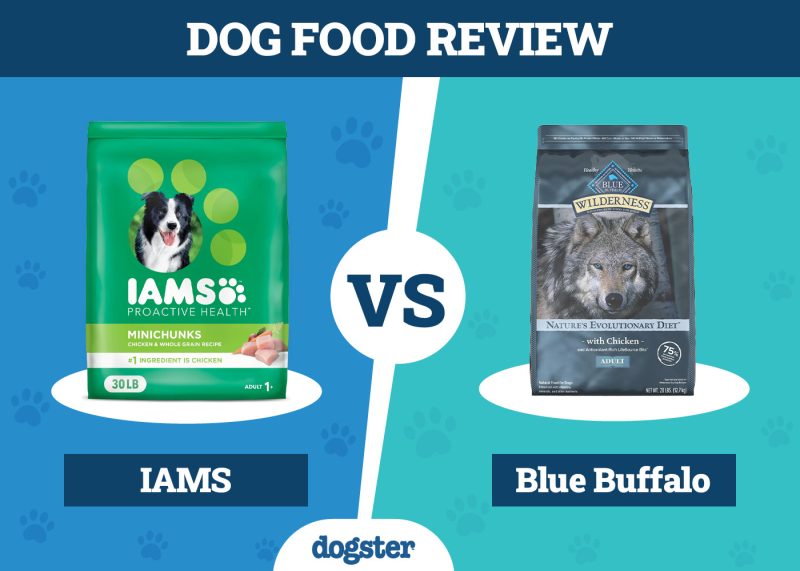In this article
Almond flour is an alternative to wheat flour that, in humans, is considered healthier because it has fewer carbs, contains plenty of nutrients, and has a naturally sweeter flavor. However, while almond flour isn’t toxic to dogs, and it can be fed in moderation, for example when being used to make healthy homemade dog treats, there are some health risks associated with feeding this gluten-free alternative.
Below, we look at whether owners should feed almond flour to their dogs, any health benefits the ingredient offers, and also any risks associated with feeding it.

Can Dogs Eat Almond Flour?
Almond flour is made from blanched almonds that are then ground to create a fine powder. It has a consistency similar to that of corn flour, rather than plain flour. Because almonds do not contain gluten, almond flour is gluten-free, and it has a naturally sweeter taste than plain flour, which makes it a popular choice when cooking desserts or baking sweet goods.
Although some types of nuts are toxic to dogs, sweet almonds are not. As such, they can be fed to dogs, but only in very small quantities. Almond flour is made from ground almonds so it carries the same caveats. It should only be fed on occasion and, when fed, only given in very small quantities.
However, it can offer some benefits over plain white flour when given to your dog.

The Health Benefits of Almond Flour
When given in moderation, almond flour has some health benefits to offer your dog, including:
- Vitamin E – Vitamin E is an effective antioxidant and can also help promote healthy
- Phosphorus – Phosphorus combines with calcium to provide health benefits to your dog. It can help strengthen bones, teeth, and claws, and also helps promote a healthy
- Magnesium – Similarly, magnesium also supports bones and teeth. It is also involved in the function of enzymes and hormones.
- Protein – Dogs need protein in their diet to form and repair muscles, tendons and ligaments. The amino acids are also necessary for immune system health and the production of hormones and enzymes.
- Fiber – Dogs need dietary fiber, and while most commercial dog foods do contain dietary fiber, some dogs need a diet with higher fiber, as recommended by their vet.
- Fewer Carbs Than Wheat Flour – Carbohydrates are an important part of a dog’s diet, and studies have shown that dogs are capable of digesting quite large quantities of carbohydrates. But, if your dog is already on a high-carb diet, there are fewer carbs in almond flour than in plain wheat
Potential Health Risks
Although there are health benefits to feeding small amounts of almond flour to your dog, the ingredient also poses some real health risks:
- Calories – almond flour is much higher in calories than wheat flour. Per 100g of flour, almond flour contains 570 kcal whereas wheat flour contains only 340 kcal. If your dog is overweight, almond flour shouldn’t be on the list of food they should eat.
- Pancreatitis – High in fat, almond flour can force your pancreas to work hard in order to release the enzymes needed to digest it. In some dogs, this can lead to pancreatitis. If your dog is predisposed to or has suffered with pancreatitis before, avoiding high fat foods is important.

How to Feed Almond Flour to Your Dog
Plain almond flour is too dry for most dogs to eat, so it will need preparation if you do want to give it to your pup. Use it in place of wheat flour when making homemade, healthy treats for your dog.
Start with a small amount of the healthy treat, check the safety of all other ingredients, and try to stick to simple recipes that only include natural ingredients. If you notice any signs of gastrointestinal upset, stop feeding the almond flour immediately and if your dog is vomiting or has diarrhea, contact a vet to get their advice.
If you need to speak with a vet but can't get to one, head over to PangoVet. It's our online service where you can talk to a vet online and get the personalized advice you need for your pet — all at an affordable price!

Can Dogs Eat Almonds?
Sweet almonds are not toxic to dogs, but they are not considered a safe food to give to our canine companions. They are high in calories and fat and can cause your dog to gain additional weight and may, in some cases, cause pancreatitis. In small dogs, whole almonds also are a choking or intestinal blockage risk given the size of them. If your dog has eaten one or two almonds and isn’t showing any signs of choking, they are likely to be fine, but monitor them closely to ensure they are passing feces normally and not showing any signs of gastrointestinal upset. If your dog has eaten more than just a few almonds, you should speak to a vet to see if they advise inducing emesis (making your dog vomit) to reduce the risk of pancreatitis.

Can Dogs Eat Almond Butter?
Similarly, almond butter is high in fat and contains a lot of calories. It can be far too rich for most dogs, which means it is likely to cause gastrointestinal upset. You also need to check additional ingredients.
Can Dogs Drink Almond Milk?
Almond milk has similar caveats to any other almond foods or drinks. It can be given in very small amounts, and occasionally, but it can cause illness if fed in too large a quantity. Many almond milks also contain additional ingredients that can be potentially harmful to dogs, so you need to be extra careful.
What Flour Is Best for Dogs?
Almond flour is relatively safe when used in moderation to make dog treats. Otherwise, your best option is to use a modest amount of whole wheat or whole oat flour. These are not toxic and are safe to feed in moderation.

In Conclusion
Although almond flour is not toxic to dogs and does offer some health benefits, it is high in calories and fat. As such, it should only ever be given as a very occasional treat and fed in moderation.
Start with a very small amount if you’re looking for an alternative to wheat flour when making healthy dog treats. Look for signs of gastrointestinal upset and stop feeding if your dog does show signs of vomiting or diarrhea.
Featured Image Credit: New Africa, Shutterstock




















